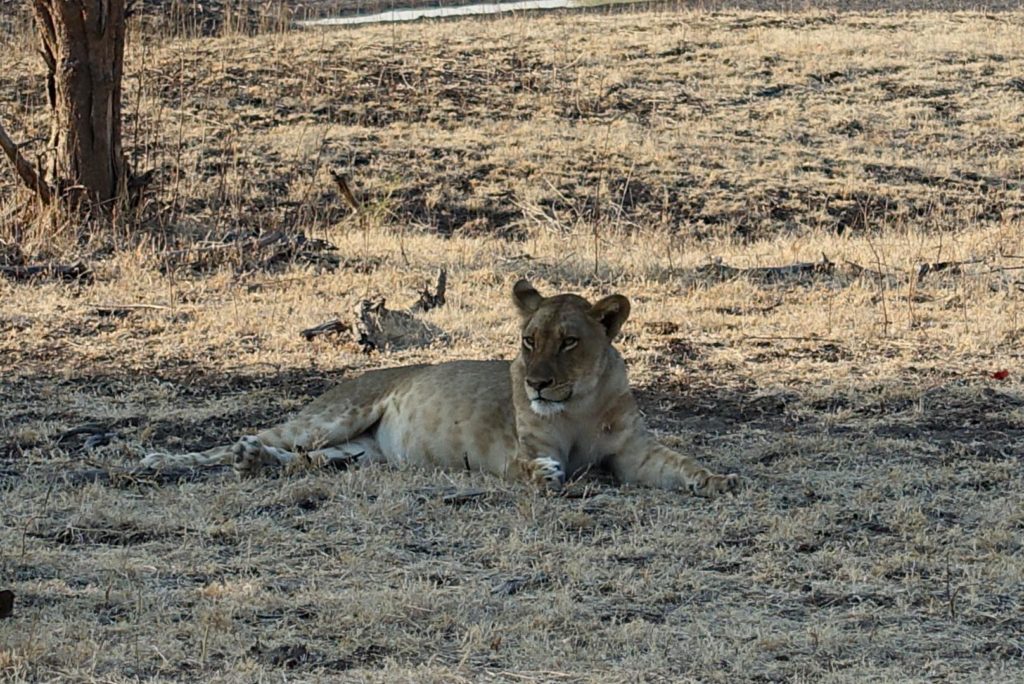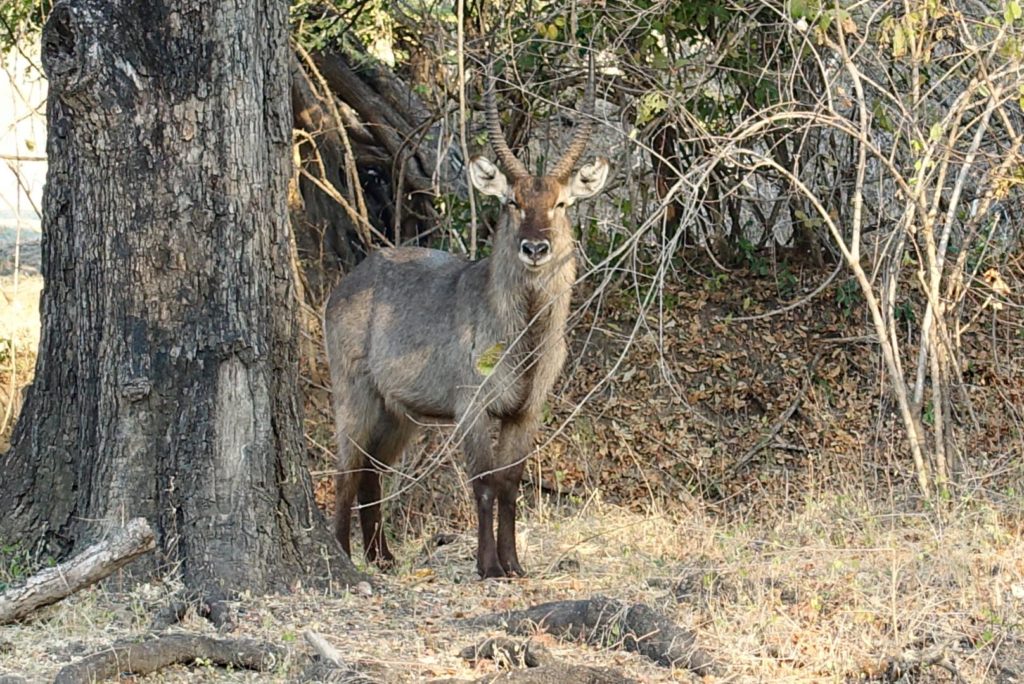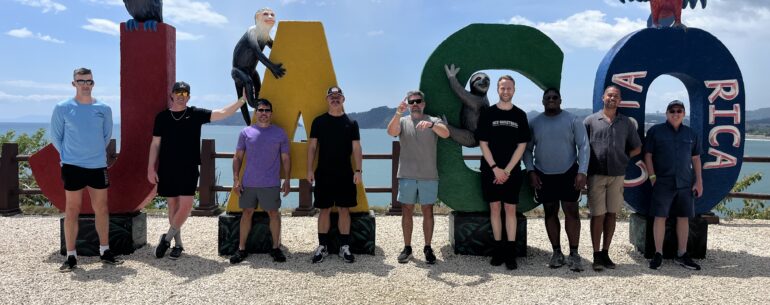There’s a popular video on Youtube I revisit quite a bit. A motivational speaker is giving a talk to NCAA athletes, imploring them to be savage like a lion.
He says, “Everybody wants to be a beast until it’s time to do what beasts do!”
It got me thinking. How might his message apply to success in business & investing.

A wise old lion was laying under a shade tree when a young lion approached and said, “I hear you’re the big cat, the most ferocious in all the land. Can you teach me to hunt?”
The old lion looked down and made a dismissive sound, “Mmm.”
Young lion said, “I walked a long way to learn from you.” But old lion stared off in the distance as if young lion wasn’t there.
Young lion felt disrespected. He woke up at 5am the next morning and hunted all day. By sundown, he tracked and killed an impala. He hoped the kill would earn some respect from old lion.
He found old lion laying under the same tree and said to him, “I got up at 5am, hunted all day and snagged this impala. What’d you do today, old lion?”
Old lion glanced at him, “Mmm,” then said he was going for a walk. Young lion was pissed that old lion wouldn’t even acknowledge his kill.
Feeling frustrated and unworthy of even a few words from old lion, he’d hunt again the next day. He woke up even earlier, hunted all morning and successfully wrangled a kudu, which was larger than the impala.
When young lion went to see old lion with kudu in tow, old lion was laying under the same tree, staring off into space. Young lion tried to show off his second kill in two days, but old lion wasn’t interested, said he was going to nap and go for a walk.
Young lion began to doubt whether old lion was the ferocious killer he’d heard about. How could he be a fierce hunter, he thought, if he never “works.”
Three straight days, young lion was up before the sun. He managed to track down and kill a 200-pound bushbuck on his third day. Three for three! Surely wise old lion will be impressed, he thought.

Young lion dragged the bushbuck in front of wise old lion to show him. But old lion was looking past him, even stretching his neck to see over young lion and the bushbuck. More disrespect, young lion thought.
But when young lion turned to see what old lion was looking at, he saw a 550-pound blue wildebeest sipping water from a shallow pond.
In one lightning fast movement, old lion sprang up and leaped over young lion and the bushbuck carcass. His long strides were like nothing young lion had ever seen. Within seconds, he’d wrapped his jaws around the giant wildebeest. Young lion sat in awe watching the efficiency and killer instinct of old lion.
As the old lion and his pride rested between bites of succulent wildebeest, young lion pleaded with him to share how he did it. Old lion said, “I spend a lot of time thinking, and taking walks.”
What if being a beast means taking more time to stare off into space, and going for walks?
John D. Rockefeller: Lion of the Industrial Age
A lion traditionally symbolizes courage and strength—it’s been regarded as the “king of beasts.”
John D. Rockefeller, Sr., was once the wealthiest man on earth, a lion of the industrial age—the word “billionaire” had never been used as a moniker for a man until it was bestowed on him in 1916. He was fiercely revolutionary in managing his vast oil empire
In an 1878 New York Sun article, Rockefeller was referred to as the greatest commercial intellect in America. Despite living at a time when over 80% of jobs were labor-intensive, Rockefeller was a thinker. His cerebral style characterized his approach to business. He was known to sit quietly in meetings and barely say anything at all. When he finally did speak, he’d amaze meeting attendees with his ability to absorb facts and information, then from memory, sort everything out and make big decisions.
Rockefeller developed his ability to think by spending a lot of time alone, taking walks in nature and strategically napping to maximize his energy. By balancing the right mix of thought work and rest to pace himself, he believed that his productivity increased.
People Say I Monkey Around
I was an inside sales rep early in my career. Sometimes referred to as “phone monkeys,” we were expected to dial the phone as many times as possible. The guy who sat next to me would unthinkingly make 100 phone calls in one day.
We were “knowledge workers” with no mental expenditure. To utilize five minutes thinking about how to approach a call was to sacrifice five dials of the phone.
I felt like an outcast in that office, if only because I’d calculated that my next ten-minute call with a decision-maker could be worth $100/minute. Which seems crazy until you do the math: ten minutes, $10,000 deal…10% commission rate.
It wasn’t a decade earlier that I was placing Whoppers on a grill for the princely sum of $4.60/hour, so $1,000 in commissions was BIG money.
Willing to withstand ridicule for appearing lazy, I would invest ten minutes’ time to think before a call.
My manager once said to me, “You’ve got more deals in the pipeline than anybody. Can you imagine if you made more phone calls?”
I said, “Yes, I’d be like everybody else.”

Outstanding Thinkers
Bill Gates, like Rockefeller, was also once the wealthiest man in America (now second to Jeff Bezos). He attributes much of Microsoft’s growth to BIG ideas and concepts which came to him during self-imposed Think Weeks. He didn’t consider Think Week-retreats to be vacations, so he didn’t allow interruptions from family, friends or Microsoft employees.
Chris Sacca, known for his early-stage investing in Uber and Instagram, is referred to as a “Silicon Valley investor,” despite not having lived near San Francisco since 2007. Instead, he bought a cabin outside of Tahoe because he said, “I wanted to go on offense. I wanted to have the time to focus, to learn the things I wanted to learn, to build what I wanted to build…”
Richard Feynman, a brilliant thinker who helped to build the atomic bomb that ended World War II, recalled one of his first jobs in Surely, You’re Joking Mr. Feynman? He was working as a radio repairman during the Depression. One afternoon, after briefly looking at a man’s radio, he began to pace back and forth. Suddenly, the man said to him, “What are you doing? You come to fix the radio, but you’re only walking back and forth?” Feynman said, “I’m thinking!”
Final Thoughts
Lord knows I’m no Gates or Feynman, although I did finish in the top 80% of my high school graduating class. Perhaps that’s why I’m drawn to author Nassim Taleb. He believes, “Academia is to knowledge what prostitution is to love; close enough on the surface but, to the nonsucker, not exactly the same thing.”
He later qualified his statement, “There are exceptions, but there are also many known cases in which a prostitute falls in love with a client.” Anyway, those burgers weren’t going to flip themselves.
On safari in Africa in 2015, I saw many lions just sitting around. I asked our guide when the lions hunt. He said, “Mostly they just sit there. But when they see an opportunity, they go for it.”
There was no TV or wifi connection in the bush. One night I was thinking about how nice it was to be alone with my thoughts. It felt like the persistent weight of obligation to emails and texts had temporarily been lifted. I spent a lot of time writing at the desk in my chalet.

Another night, there were sounds like I’d never heard before, as if cats were fighting outside my window, except the cats were beasts tearing into an animal whose cries were barely audible. I heard roars that some believe are the loudest sounds in the animal kingdom. It was pure savagery—lions on the hunt.
When the noise subsided, I thought about that Youtube video. I decided that I didn’t want to be someone who succumbs to anxiously reaching for my phone in every idle moment. To stare off into space and think is a better investment of time, and when opportunity knocks, beast mode.
Anyone who wishes to rise above mediocrity, by definition, must be a contrarian. Next time you’re in a meeting or a small group and everyone is on their phones, think about it.




Another great read!
Thank you!
Great article and makes you stop and think. How much better off would we be if we would just put our phones down and think?
Thanks, Russell. I *think* a lot better off haha.
What is the link to that youtube video? 🙂
https://m.youtube.com/watch?v=eI5KqBGd01M